
Warren Griffin III is an American rapper, record producer, and DJ known for his role in West Coast rap's 1990s ascent. A pioneer of G-funk, he attained mainstream success with the 1994 single "Regulate", a duet with Nate Dogg. He significantly helped Snoop Dogg's career during the latter's beginnings, also introducing him to Dr. Dre, who later signed Snoop Dogg.

The Chronic is the debut studio album by the American hip hop producer and rapper Dr. Dre. It was released on December 15, 1992, by his record label Death Row Records and distributed by Interscope Records. Recording sessions took place in Death Row Studios in Los Angeles and at Bernie Grundman Mastering in Hollywood.
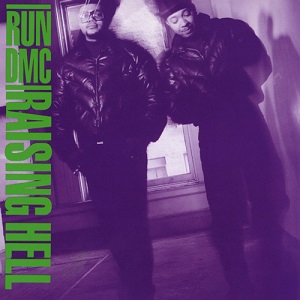
Raising Hell is the third studio album by American hip hop group Run-D.M.C., released on May 15, 1986, by Profile Records. The album was produced by Russell Simmons and Rick Rubin. Raising Hell is notable for being the first Platinum and multi-Platinum hip hop record. The album was first certified Platinum on July 15, 1986, before it was certified as 3× Platinum by the Recording Industry Association of America (RIAA) on April 24, 1987. It is widely considered to be one of the greatest and most important albums in the history of hip hop music and culture.

Doggystyle is the debut studio album by American rapper Snoop Doggy Dogg. It was released on November 23, 1993, by Death Row and Interscope Records. The album was recorded and produced following Snoop Doggy Dogg's appearances on Dr. Dre's debut solo album The Chronic (1992), to which Snoop contributed significantly. The West Coast style in hip-hop that he developed from Dre's first album continued on Doggystyle. Critics have praised Snoop Dogg for the lyrical "realism" that he delivers on the album and for his distinctive vocal flow.
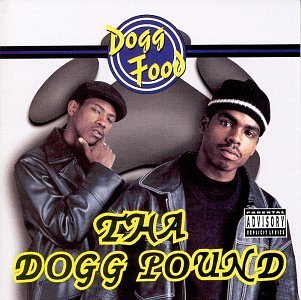
Dogg Food is the debut studio album by American hip hop duo Tha Dogg Pound, released on October 31, 1995, by Death Row Records and Interscope Records. The album features guest appearances from Snoop Dogg, Nate Dogg, Michel'le, The Lady of Rage, Tray Deee, and Mr. Malik. Two singles were released from the album: "Let's Play House" and "New York, New York".
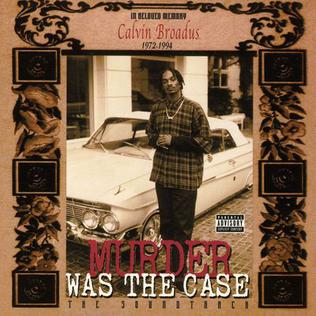
Murder Was the Case is a 1994 short film and soundtrack album starring and performed by Snoop Doggy Dogg. The 18 minute film was directed by Dr. Dre and Fab Five Freddy and chronicles the fictional death of Snoop Dogg and his resurrection after making a deal with the Devil. The film's title comes from Snoop's song of the same name from his debut album, Doggystyle, which had been released a year earlier.
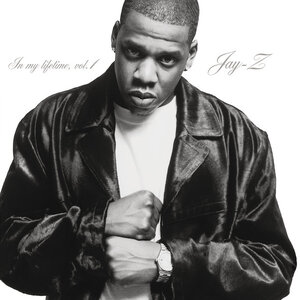
In My Lifetime, Vol. 1 is the second studio album by American rapper Jay-Z. It was released on November 4, 1997, by Roc-A-Fella Records and Def Jam Recordings. The album debuted at number three on the US Billboard 200 chart and was certified Platinum by the RIAA, selling over 138,000 copies in its first week of release. In My Lifetime, Vol. 1 also served as Jay-Z's first album release following the sudden death of fellow Brooklyn rapper and collaborator The Notorious B.I.G. in March 1997.

Vol. 3... Life and Times of S. Carter is the fourth studio album by American rapper Jay-Z. It was released on December 28, 1999, by Roc-A-Fella Records and Def Jam Recordings. According to USA Today critic Steve Jones, the record marked a return to the street-oriented sound of Jay-Z's 1996 debut album, Reasonable Doubt. Vol. 3... featured production from Swizz Beatz, Timbaland, K-Rob, DJ Clue, Rockwilder, DJ Premier, and Irv Gotti, among others.

Tha Doggfather is the second studio album by American rapper Snoop Dogg. It was released on November 12, 1996, by Death Row and Interscope Records. After the success of his debut album Doggystyle (1993), Snoop was arrested and charged with murder and in 1995, spent time preparing for the case that went to trial. On February 20, 1996, he was cleared of all charges and began working on his second album without Dr. Dre providing work as a record producer. This was Snoop's final album on Death Row until 2022, when he acquired the rights to the Death Row trademarks from MNRK Music Group, releasing BODR the same year. This would also be his last album under the moniker Snoop Doggy Dogg before it was shorted to Snoop Dogg. Recording sessions took place from February 1996 to October 1996, with Suge Knight as the executive producer on the album, alongside the additional production from several record producers such as DJ Pooh, Daz Dillinger, Soopafly and L.T. Hutton; as well as guest appearances from Charlie Wilson, Kurupt, Tray Dee and Warren G, among others.
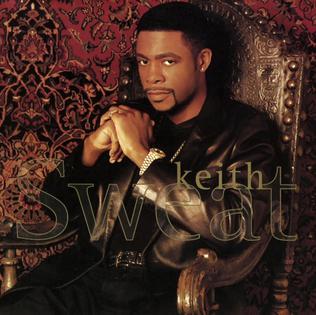
Keith Sweat is the fifth studio album by the American singer Keith Sweat. It was released by Elektra Records on June 25, 1996, in the United States. The single, "Twisted", made it to number two on the US Billboard Hot 100, his biggest hit ever on that chart. "Nobody" peaked at number 3 on the same chart. Both songs are his final two of six hits to reach number one on the R&B singles chart and gave Sweat two more Top 5 pop hits in eight years since his first single, "I Want Her".
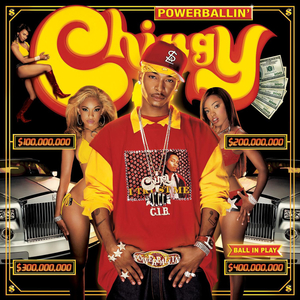
Powerballin' is the second studio album by the rapper Chingy, released on November 16, 2004, through Capitol Records and Chingy's Slot-A-Lot label. The album entered the Billboard 200 at number 172 with first week sales of 7,000 copies in the US, but then climbed to number 10 with another 120,000 copies sold in the following week. It has since been certified Platinum by the RIAA for shipping over a million copies in the US. The song "I Do" was used in the video game Need for Speed: Underground 2.

Rebirth of a Nation is a collaborative studio album by American hip hop group Public Enemy and rapper/producer Paris. Its title is a reference to the 1915 white supremacist film The Birth of a Nation as well as one of the group's prior albums, It Takes a Nation of Millions to Hold Us Back. Despite the Public Enemy branding on the album, many tracks were written and produced by Paris; the album itself was deemed a "special project" by Chuck D in order to differentiate it from other Public Enemy works. It was released on March 7, 2006 through Guerrilla Funk Recordings with distribution via Caroline Distribution. The album was mixed and mastered at Data Stream Studio in San Francisco, California. The album features guest appearances from Dead Prez, MC Ren, Kam, Sister Souljah, The Conscious Daughters, Immortal Technique and Professor Griff. Rebirth of a Nation peaked at number 180 on the Billboard 200 albums chart in the United States and sold 5,592 units in its first week out.
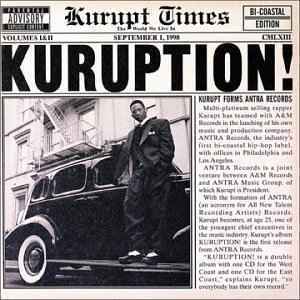
Kuruption! is the debut studio album by American rapper Kurupt. It was released on Antra Records, a label formed after Kurupt left Death Row Records. It was released as a double album and distributed by A&M Records. Originally scheduled for release on September 1, 1998, with the album cover even announcing that date, the album was pushed back to October 6, 1998.
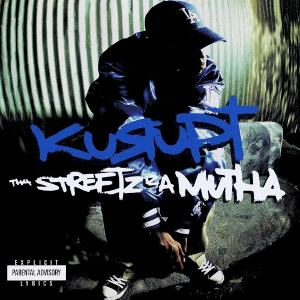
Tha Streetz Iz a Mutha is the second studio album by the American rapper Kurupt. It was released in 1999 through Antra Records with distribution from Artemis Records.

He Got Game is a soundtrack and sixth studio album by American hip hop group Public Enemy, released on April 28, 1998, under Def Jam Recordings. It was released as the soundtrack to Spike Lee's 1998 film of the same name and was the group's last album for Def Jam until 2020's What You Gonna Do When the Grid Goes Down. He Got Game was produced by members of the Bomb Squad, along with producers Abnes Dubose, Danny Saber, D. R. Period, and Jack Dangers.
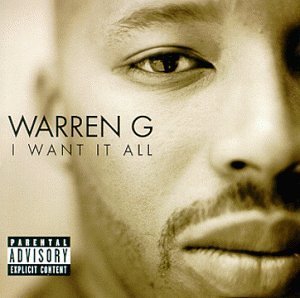
I Want It All is the third studio album by the American rapper Warren G. It was released on October 12, 1999, via his own label, G-Funk Entertainment, in conjunction with Restless Records. Snoop Dogg, Nate Dogg, Tha Dogg Pound, Mack 10, Eve, Jermaine Dupri, and Slick Rick make guest appearances. I Want It All contains less vocals by Warren G, who focused more on the producing.

"My Heart Is Calling" is a song recorded by the American recording artist Whitney Houston for the 1996 film The Preacher's Wife. It was released on June 10, 1997, as the third and final single by Arista Records from the accompanying soundtrack. The song was written and produced solely by Babyface. Musically, the song is an R&B ballad, with gospel music and funk influences, and the lyrics speak about meeting someone special. "My Heart Is Calling" received mainly positive reviews from music critics, who commended Houston's soulful performance. It peaked at number 77 on the United States Billboard Hot 100, and number 35 on Billboard Hot R&B/Hip-Hop Songs chart. There was no music video made for the song.

All I Feel is the fourth and to date most recent studio album by American R&B singer Ray J and was released on April 8, 2008, by Knockout Entertainment, Deja34, Epic Records and Koch Records. It is the second album by Ray J to be labeled with a Parental Advisory sticker. The album features the singles "Sexy Can I" featuring labelmate Yung Berg, and "Gifts", and was his only album with Koch Records.

Mo'Roots is an album by the American saxophonist Maceo Parker, released in 1991. It peaked at No. 4 on Billboard's Traditional Jazz Albums chart.
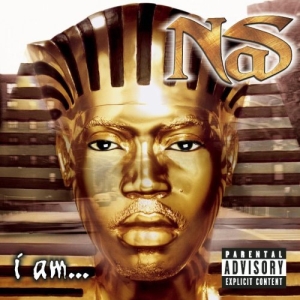
I Am... is the third studio album by American rapper Nas, released on April 6, 1999, by Columbia Records. Following the commercial and critical success of 1996's It Was Written, Nas put to work on a double album that merged the styles of his first two albums and detailed entire aspects of his life. Although he was able to use most songs, other songs that would have made I Am… a double album leaked onto the internet in MP3 format, forcing him to record new material for two separate single-disc releases.




















